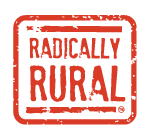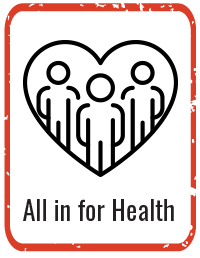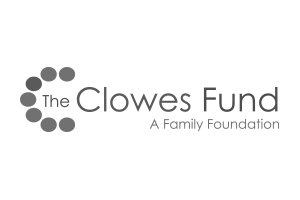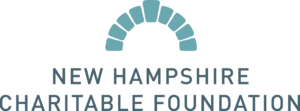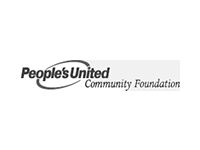Click each icon to learn more about the track and its sessions.
| Entrepreneurship Track |
Each successive recession in recent history has left in its wake an ever-widening economic gap between rural communities and national trends. Along with a stunning lack of new business formation in rural America, if this trend continues after this current pandemic-induced recession, it will perpetuate ever-widening gaps in income, population, education attainment, innovation, politics, employment and opportunity. Radically Rural seeks to provide solutions, guidelines and models for community leaders, groups and individuals to create a rich culture of entrepreneurship, a thriving local economy and a vibrant community.
Who Should Attend: Entrepreneurs, economic and community development professionals, government leaders, business leaders, community and downtown advocates, entrepreneur support organizations, lenders and other business funders
Track Leaders: Chris Harris, Senior Director of Growth and Strategy, Kansas Leadership Center & Sara Powell, Program Director, Hannah Grimes Center for Entrepreneurship
Trailblazing a Path to Funding: Fresh Models Meeting the Capital Needs of All Entrepreneurs
September 27 @ 11:00 AM – 12:30 PM | Hannah Grimes Center
Entrepreneurship plays a big role in our rural communities creating thriving and resilient places to live and meaningful and sustainable work for families. The structural and systemic barriers facing many entrepreneurs for accessing the funding needed to start and grow businesses can be great, threatening many of these enterprises before they even get off the ground. This session will lift up some innovative models for addressing these challenges. We will explore: How did they do it? Who do they serve? How does it fill in the gaps?
This session is for you if:
- You want to hear from National Leaders executing on innovative solutions for addressing the capital needs of entrepreneurs
- You want to learn how these models are tested and scaled across the country
- You want to understand how to take these concepts and apply them to your own entrepreneurial community/ecosystem
Moderator: Lakota Vogel, Executive Director, Four Bands Community Fund
Growing Rural Entrepreneurs: Rural Entrepreneurs & Their Stories
September 27 @ 2:00 PM – 3:30 PM | Hannah Grimes Center
Entrepreneurs are a critical ingredient to a thriving rural community. They solve problems and support a vibrant, diverse, and growing economy. Nearly all entrepreneurs will need to access capital to start or grow their venture and too many entrepreneurs will face unequal access to that capital. This session will showcase four entrepreneurs as we learn about their journey to start and grow a rural venture. Attendees at this session will learn about the work of supporting rural entrepreneurs by listening to four 1:1 conversations between an entrepreneur and the entrepreneurship support program that helped them make progress.
This session is for you if:
- You want to hear from entrepreneurs and their supporters about how they grew their venture and why they chose to do it in a rural community
- You want to see how entrepreneurship support and capital access programs directly impact rural entrepreneurs
- You want to understand how to take these concepts and apply them to your own entrepreneurial community/ecosystem
Moderator: Alison Chisolm, Owner, Consultant Squared
Speakers: Laurel Adams, President, Regional Economic Development Center; Tosh Comer, Coaching & Connections Manager, Thread Capital; Swarvoski Little, Loan Officer, Change Labs
Taking it Back Home
September 28 @ 11:00 AM – 12:30 PM | Hannah Grimes Center
PitchFork Challenge
This is the culmination of a Hannah Grimes program. Learn more here.
September 28 @ 2:00 PM – 3:30 PM | Colonial Showroom
The PitchFork Challenge provides money and momentum for rural entrepreneurs in the form of a friendly business pitch competition. Rural entrepreneurs are coached to create a compelling pitch describing their business opportunity in pursuit of a cash award. Ultimately, one business owner is chosen to receive a $10,000 cash prize every year. For the inaugural Radically Rural Summit in 2018, the success of the Hannah Grimes PitchFork Program was leveraged into the PitchFork Challenge, which provided local entrepreneurs in eligible counties with the opportunity to meet like-minded entrepreneurs, develop relationships with investors, and build up the skill of talking about their business in a clear and succinct way.
| Community Journalism Track |
Local journalism, a bedrock for informed and successful small communities, is under threat. More and more towns are losing their local news sources to the economic upheaval facing the news business and dramatic changes in the ways people get their information. We know that when a trusted local news operation leaves a town, taxes increase, bond rates worsen and community economic development suffers. The Community Journalism Track for Radically Rural assembles expert journalists to help small news organizations build sustainability. Each year we pull together a program that is scalable for rural newsrooms, providing advice and tips that build more responsiveness and relevancy.
Who Should Attend: Journalists, community leaders and organizers, law- and policy-makers and government leaders.
Track Leaders: Terrence Williams, President & COO, The Keene Sentinel & Jack Rooney, Managing Editor for Audience Development, The Keene Sentinel
How’d They Do That? Building Sustainability
September 27 @ 11:00 AM – 12:30 PM | Colonial Showroom
Kansas Press: The Fourth Estate in the Heart of America
September 27 @ 12:30-1:30 PM | Colonial Showroom
Jeremiah Ariaz, a professor of art at Louisiana State University, took a sabbatical in 2022 and visited 115 newspapers in his home state of Kansas. He set out to document the challenges facing both democracy and newspapers, seemingly joined at the hip these days in their respective futures. In his exhibit, The Fourth Estate, his photographs present vivid and stark images of the decline facing newspapers, offering a grim retelling of several that have closed but suggesting hope for those who persevere. Please register for this session as seats are limited
Ariaz says: “My photographs celebrate the civic function, labor, and technology at the heart of local newspapers’ production, while also documenting an industry in free-fall. Faced with the gutting of local journalism facilitated by digital news, social media, and diminishing profit margins, these newspapers often struggle as they continue to serve their communities.”
Speaker: Jeremiah Ariaz, Professor of Art, Louisiana State University
September 27 @ 2:00 PM – 3:30 PM | Colonial Showroom
Successful rural news organizations are building revenue through fundraising, membership and paid readership. Our panel discussion unveils best practices among for-profit organizations and non-profits alike.
September 28 @ 11:00 AM – 12:30 PM | Colonial Showroom
A deep dive into how three journalists — from Mississippi to North Carolina to Maine — reported powerful stories that have deeply impacted the rural communities they cover.
Moderator: Jack Rooney, Managing Editor for Audience Development, The Keene Sentinel
| Arts & Culture Track |
The Arts are an expression of our cultural roots, our reality today, and our understanding of what may happen tomorrow, and, as such, are vital to the health of our rural communities. The arts feed our sense of belonging, understanding and social development and are an excellent means of sharing culture and connecting through beauty and stories. The arts can also be an intrinsic part of economic development – instigating tourism, downtown spending, and more. Join us at Radically Rural as we explore stories from rural communities about how the arts build community connections, grow pride in our rural spaces, and celebrate the growing diversity of our communities.
Who Should Attend: Community Development professionals, Planners, Architects and Designers, Philanthropists, Nonprofit and Business Grantmakers and Evaluators, Municipal and City leaders, Developers, Writers and Journalists, Local arts agencies, Arts organization leaders and programming directors and development officers
Track Leader: Jessica Gelter, Executive Director, Arts Alive
September 27 @ 2:00 PM – 3:30 PM | Historical Society – Exhibit Hall
Artists are a great asset for a community. They put on events that drive tourism and connect community members, they bring complex and multi-layered perspectives to local issues and conversations, and they make our communities beautiful with sculpture, murals, installations, and more. The value that a strong creative community can bring is immense, so besides just trying to attract artists to move in and “do their thing,” what can help creatives thrive in rural communities? We’ll hear about three projects of rural arts service organizations supporting creatives across rural spaces and helping them thrive. After the three presenters share the projects they’re working on, we will open it up to a group conversation with the audience.
Speakers: Blair Benjamin, Assets for Artists Director, MASS MoCA; Molly Johnston, Rural Program Manager, Springboard for the Arts; Kyle Whalen, Director, La Luz Centro Cultural
| Land & Community Track |
Land use permeates conversations in rural communities, from forestry to cattle grazing, to farming and to recreation. The livelihoods of these towns are often tied to the surrounding landscape and lands. Because the health of this land is impacted by the climate crisis, communities must act, adjust and adapt. Join Radically Rural as we introduce how people can better connect to the land for economic, social and healing benefits.
Who Should Attend: Farmers, Agricultural Service Providers, Environmental Professionals, Public Health Professionals, Planners, Students of Environment and Agriculture Programs, Community members interested in improving the agricultural economy of their region, Community members interested in improving public health and land stewardship
Track Leaders: Amanda Littleton, District Manager, Cheshire County Conservation District & Matt Smetana, Community Engagement Coordinator, Cheshire County Conservation District
The Agrarian Collaborative
September 27 @ 2:00 PM – 3:30 PM | Delegation Hall
The Social Value of Agriculture
September 28 @ 2:00 PM – 3:30 PM | Hannah Grimes Center
products. Ask any farmer, and they will tell you that agriculture fuels not only their bodies but their souls as well. Recognizing this opportunity, farms, organizations and municipalities are exploring the values of agriculture as a form of social service, therapeutic practice, community- builder, economic bridge and so much more. These so-called “social” values provide often
profound opportunities to meet the diverse needs of communities and of the farmers themselves.
| Clean Energy Track |
The climate crisis is impacting rural communities disproportionately. These communities frequently depend on agriculture and tourism economies, but changes in weather patterns threaten both. Residents of rural communities also spend more of their household dollars on energy, studies show. Investment in energy efficiency, renewables and community solutions to electricity purchasing can provide opportunities to reduce costs, increase comfort and enhance rural living and resilience. Radically Rural seeks to provide solutions, guidelines and models for community leaders, groups and individuals to promote clean energy as a means to combat the climate crisis.
Who Should Attend: Municipal and city leaders, community, regional and statewide leaders; community organizers and energy committee members (local, regional, statewide); clean energy activists and advocates, farmers and foresters
Track Leader: Rob Werner, State Director for NH, League of Conservation Voters
Climate, Clean Energy, and Public Health – Collab with All in for Health
Speakers: Robert Dewey, Vice Chair, NH Healthcare Workers for Climate Action; Suzanne Gaulacher, Assistant Professor of Public Health, Plymouth State University; Carl Cooley, Director, NH Healthcare Workers for Climate Action
Resident-Owned Communities: Where Naturally Affordable Homeownership, Neighborhood Self-Empowerment, and Renewable Energy Meet – Collab with Main Street
September 27 @ 11:00 AM – 12:30 PM | East Lot, Gilbo Ave
Space is limited. Please register in advance for this session.
Speakers: Jeannie Oliver, Senior Director, ROC-NH; Jeanee Wright, Cooperative Program Manager, ROC USA; Mary O’Hara, Executive Vice President, ROC Movement; Kelli Cicirelli, Director of Organizational Training and Leadership, ROC-NH; Dan Hunt, Resident, Animas View MHP Cooperative, Inc.
September 28 @ 2:00 PM – 3:30 PM | Delegation Hall
| All in for Health Track |
Why should community members care about health? A community that cares about the health of its members cultivates a vibrant and sustainable place for living, working and playing. A healthy community positions itself to attract new businesses and residents, keeps young families in town, lowers costs for employers, and helps the elderly age gracefully in place. It takes all of us to create this vision of a healthy community. Join us in the All in for Health track at Radically Rural to learn more about your role in this picture. This year we’ll focus on the foundation of community well-being sculpted by the social determinants of health. We will discuss topics such as how adequate housing and community-based behavioral health resources can improve the lives of rural communities. What specifically can you take away from this track? Tangible tools to bring home: replicable ideas from model projects, innovative ideas to spark deep conversation about how everyone can contribute to a healthy and vibrant community.
Who Should Attend: Community organizers, municipal and business leaders, entrepreneurs, activists, philanthropists, the general public, and healthcare workers.
Track Leader: India Olchefske, Project Associate, Partners for Andean Community Health
Climate, Clean Energy, and Public Health – Collab with Clean Energy
September 27 @ 11:00 AM – 12:30 PM | Exhibit Hall – Historical Society
Speakers: Robert Dewey, Vice Chair, NH Healthcare Workers for Climate Action; Suzanne Gaulacher, Assistant Professor of Public Health, Plymouth State University; Carl Cooley, Director, NH Healthcare Workers for Climate Action
September 28 @ 12:45 PM – 1:45 PM | Hannah Grimes Center
In this session of the health track, Barbara Pierce from Virtual Crisis Care and Megan Weis from Rural Libraries and Health Cooperative Agreement will discuss two innovative community-led health programs that seek to provide care at opposite ends of the spectrum, crisis and prevention. Both programs use non-traditional community members as care providers and technology to provide care outside of the typical medical setting.
Moderator: Olivia Belanger, Health Solutions Reporter, Monadnock Region Health Reporting Lab
Folks Helping Folks: Using the Community Paramedicine Model to Support a Community’s Unique Needs
September 28 @ 2:00 PM – 3:30 PM | Exhibit Hall – Historical Society
The relatively new and evolving community paramedicine model is an example of leveraging community members, in this case, paramedics and emergency medical technicians, to operate in expanded roles with additional training to improve access to care.
Moderator: Randy Schwartz, President, Public Health Systems Consultants
Speakers: Darren Forman, Firefighter/Paramedic, Project Swaddle; Samantha Swearingen, Project Manager, Project Swaddle; Jonnathan Busko, Medical Director of Care Delivery Transformation, St. Joseph Healthcare; Rick Petrie, COO, North East Mobile Health Services
| Main Street Track |
Main Streets are the socio-economic centers of rural communities. Their ability to thrive is essential to the continued economic success of small cities and towns, and these centers imbue their residents with a sense of place. This awareness is often tied to the past, inextricability set in the present and looking toward the future. Facing challenges of today means keeping Main Street surviving and even thriving. Tomorrow’s future doesn’t mean leaving everything behind but, rather, acknowledging what to save and what to improve. Reimagining Main Streets can enliven stakeholders and residents in fundamentally new ways. Join us at Radically Rural as we explore the rebirth of Main Street and the positive impacts available to rural communities.
Who Should Attend: Business owners and professionals, municipal and city planners, community members, volunteers and individuals interested in community revitalization
Track Leader: Todd Horner, Senior Planner, Southwest Regional Planning Committee
Strengthening Rural Communities through Welcoming New Arrivals
September 28 @ 11:00 AM – 12:30 PM | Delegation Hall
Many small towns and cities across the country are facing similar demographic headwinds: an aging population, out-migrating young people, and a shrinking workforce. Given these challenges, some communities have recognized the power and promise of opening their arms to community members with immigrant backgrounds, including refugees. Supporting new arrivals in rural places, however, poses unique challenges. For example, a lack of racial/ethnic diversity, limited transportation options, and the absence of translation services can all pose barriers to either short-term settlement, or, perhaps more importantly, making a long-term home in a rural environment. Come learn about efforts in several rural communities to put the infrastructure and services in place necessary for new arrivals to thrive and set down roots. We’ll hear about the challenges and rewards that this work involves.
Speakers: Greg Richane, Volunteer & Co-sponsorship Manager, Ascentria Care Alliance; Alex Beck, Welcoming Communities Manager, Brattleboro Development Credit Corporation; Martha Tecca, Co-leader, Upper Valley Neighborhood Support Team, SHARE; Joe Shapiro, Keene Immigrant and Refugee Partnership, Monadnock Neighborhood Support Team, State Representative; Judy Reed, Project Home
Resident-Owned Communities: Where Naturally Affordable Homeownership, Neighborhood Self-Empowerment, and Renewable Energy Meet – Collab with Clean Energy
September 27 @ 11:00 AM – 12:30 PM | East Lot, Gilbo Ave
Space is limited. Please register in advance for this session.
Speakers: Jeannie Oliver, Senior Director, ROC-NH; Jeanee Wright, Cooperative Program Manager, ROC USA; Mary O’Hara, Executive Vice President, ROC Movement; Kelli Cicirelli, Director of Organizational Training and Leadership, ROC-NH; Dan Hunt, Resident, Animas View MHP Cooperative, Inc.
